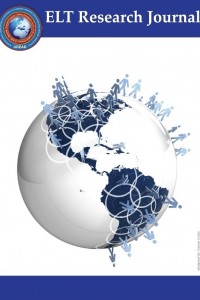Abstract
References
- Dekeyser, R. M. (1993). The effect of error correction on L2 grammar knowledge and oral proficiency. The modern language journal, 77(4), 501-514.
- Hendrickson, J. M. (1978). Error Correction in Foreign Language Teaching: Recent Theory, Research, and Practice. The Modern Language Journal, 62, 387-398.
- Lee, I. (2008). Student reactions to teacher feedback in two Hong Kong secondary classrooms. Journal of Second Language Writing, 17(3), 144-164.
- Loewen, S., & Philp, J. (2006). Recasts in the adult English L2 classroom: Characteristics, explicitness, and effectiveness. The Modern Language Journal, 90(4), 536-556.
- Long, M. H., Inagaki, S., & Ortega, L. (1998). The role of implicit negative feedback in SLA: Models and recasts in Japanese and Spanish. The modern language journal, 82(3), 357-371.
- Lyster, R. (1998). Recasts, repetition, and ambiguity in L2 classroom discourse. Studies in second language acquisition, 20(01), 51-81.
- Nicholas, H., Lightbown, P. M., & Spada, N. (2001). Recasts as feedback to language learners. Language Learning, 51(4), 719-758.
- Russell, J., & Spada, N. (2006). The effectiveness of corrective feedback for the acquisition of L2 grammar: A meta-analysis of the research. In J. Norris and L. Ortega (Eds.), Synthesizing research on language learning and teaching, (p. 133-164). Amsterdam: John Benjamins.
- Schulz, R. A. (1996). Focus on form in the foreign language classroom: students' and teachers' views on error correction and the role of grammar. Foreign Language Annals, 29, 343–364.
- Varnosfadrani, A. D., & Basturkmen, H. (2009). The effectiveness of implicit and explicit error correction on learners’ performance. System, 37(1), 82-98.
Abstract
Acquiring or learning a second language is a process and all learners are expected to make errors as they go through stages of this process. Whether they are caused by the features of the L2 or by the differences between learners’ L1 and the target language, errors are an inevitable part of second language acquisition. Researchers differ in their stance on feedback on learner errors. Proponents of error correction stress the failure to correct learner errors might cause fossilization of errors as learners will falsely assume their sentences or utterances are correct unless they are corrected by the teacher. Opponents of error correction, however, oppose error correction on the grounds that it is not beneficial and activates affective filter. The debates whether learner errors should be corrected or not aside, correcting errors in one form or another seems to be a common practice in foreign language classrooms. This study aims to examine the frequency of error correction, types of negative feedback used, and learner involvement in error correction procedures in three EFL class sessions in a university setting with three different teachers. It seeks to find out which type of error correction strategy works better in EFL setting.
References
- Dekeyser, R. M. (1993). The effect of error correction on L2 grammar knowledge and oral proficiency. The modern language journal, 77(4), 501-514.
- Hendrickson, J. M. (1978). Error Correction in Foreign Language Teaching: Recent Theory, Research, and Practice. The Modern Language Journal, 62, 387-398.
- Lee, I. (2008). Student reactions to teacher feedback in two Hong Kong secondary classrooms. Journal of Second Language Writing, 17(3), 144-164.
- Loewen, S., & Philp, J. (2006). Recasts in the adult English L2 classroom: Characteristics, explicitness, and effectiveness. The Modern Language Journal, 90(4), 536-556.
- Long, M. H., Inagaki, S., & Ortega, L. (1998). The role of implicit negative feedback in SLA: Models and recasts in Japanese and Spanish. The modern language journal, 82(3), 357-371.
- Lyster, R. (1998). Recasts, repetition, and ambiguity in L2 classroom discourse. Studies in second language acquisition, 20(01), 51-81.
- Nicholas, H., Lightbown, P. M., & Spada, N. (2001). Recasts as feedback to language learners. Language Learning, 51(4), 719-758.
- Russell, J., & Spada, N. (2006). The effectiveness of corrective feedback for the acquisition of L2 grammar: A meta-analysis of the research. In J. Norris and L. Ortega (Eds.), Synthesizing research on language learning and teaching, (p. 133-164). Amsterdam: John Benjamins.
- Schulz, R. A. (1996). Focus on form in the foreign language classroom: students' and teachers' views on error correction and the role of grammar. Foreign Language Annals, 29, 343–364.
- Varnosfadrani, A. D., & Basturkmen, H. (2009). The effectiveness of implicit and explicit error correction on learners’ performance. System, 37(1), 82-98.
Details
| Primary Language | English |
|---|---|
| Subjects | Other Fields of Education |
| Journal Section | Research Article |
| Authors | |
| Publication Date | September 30, 2019 |
| Submission Date | August 31, 2019 |
| Published in Issue | Year 2019 Volume: 8 Issue: 3 |


